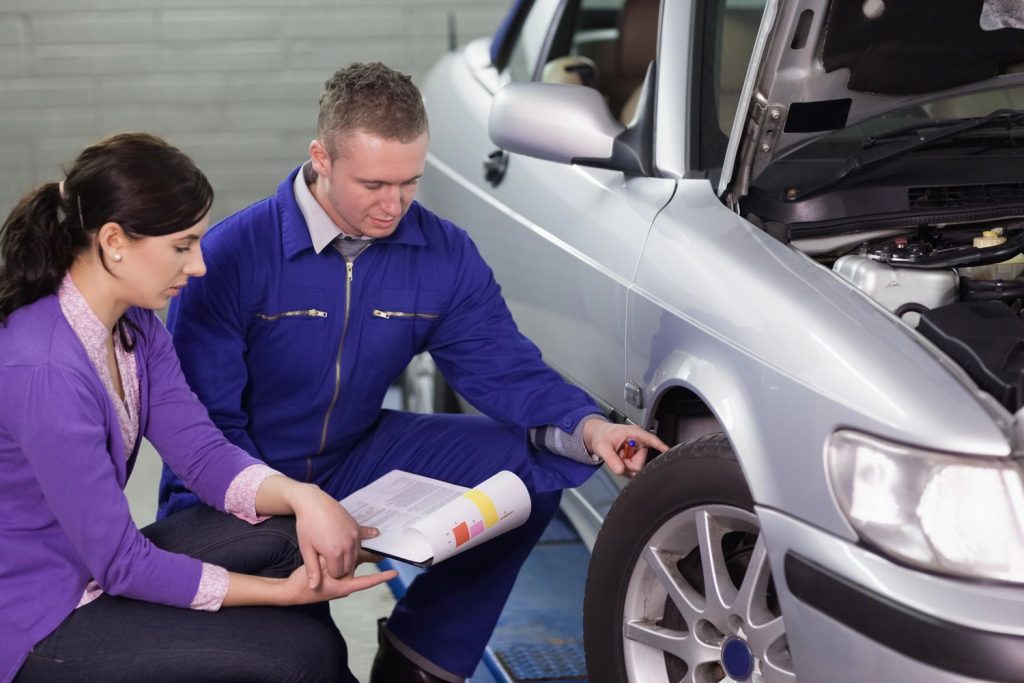Buying a used car can feel like venturing into uncharted waters. You may spot the perfect model online or at a lot in Champions Crossing, but appearances can be deceiving. Hidden mechanical issues, accident history, or safety concerns could turn a dream car into a costly mistake. That’s where a pre-purchase inspection (PPI) comes in. It’s essentially a detailed “health check” for a vehicle. But a common question arises: who should actually pay for it? Understanding this can save both buyers and sellers time, money, and headaches.
Understanding Pre-Purchase Inspections
A pre-purchase inspection is a detailed assessment of a vehicle’s condition conducted by a certified mechanic. Think of it as a full physical for a car—nothing gets overlooked.
The main goal is to reveal hidden problems that a casual glance might miss. Whether you’re buying from a dealership or a private seller in Champions Crossing, a PPI gives you peace of mind before committing.

What a Pre-Purchase Inspection Covers
A thorough inspection examines the engine, transmission, brakes, suspension, tires, and even electronic systems. Inspectors may check for past accidents, frame damage, rust, or water damage. They also assess cosmetic issues that could hint at more serious mechanical problems.
Some advanced inspections include diagnostic scans, fluid tests, and road tests to ensure the car runs as expected.
The Importance of Inspections Before Buying
Skipping a PPI is risky. Even if a car looks pristine, it could have hidden problems waiting to surface after purchase. Inspections protect your investment, help you negotiate a fair price, and ensure safety on the road. Think of it like buying a house without inspecting the foundation—you never know what you’re really getting.
The Debate: Buyer or Seller?
One of the trickiest questions is payment responsibility. Should the buyer cover the inspection, or should the seller? There isn’t a universal answer, but understanding norms and expectations can help you navigate the conversation without tension.
Why Buyers Often Foot the Bill
Most buyers pay for the inspection themselves. This approach gives them control over who conducts it and ensures the results are unbiased. By paying, the buyer can select the mechanic, schedule the inspection, and feel confident that the report is accurate and thorough. It’s a small upfront investment that can prevent huge financial headaches later.
Situations Where Sellers Might Pay
Sometimes sellers cover the cost to make the sale more appealing. Dealerships often include complimentary inspections as part of their service, giving buyers confidence. Private sellers may also offer to pay or split the cost if it helps the deal go faster or attracts serious buyers. This can be a negotiating tool, especially in competitive markets like Champions Crossing.
Industry Norms and Expectations
In Texas, and specifically in Champions Crossing, buyers usually cover the inspection. Sellers occasionally pay as a selling advantage, but this is less common. Knowing local norms prevents surprises and keeps negotiations smooth.

Factors Influencing Payment Responsibility
Several factors affect who should pay for the inspection. Vehicle age, condition, negotiation leverage, and local market trends all play a role.
Vehicle Age and Condition
Older cars or those with higher mileage often require more extensive inspections, which increases costs. Buyers typically cover these costs because the risk is higher. For newer or well-maintained cars, some sellers might cover inspections to showcase the vehicle’s condition and attract buyers.
Negotiation Leverage in Car Deals
Negotiating who pays can depend on how serious the buyer is or how motivated the seller is. If a buyer is ready to commit, a seller might cover the cost to close the deal. Conversely, buyers can use the inspection report to negotiate the price or ask the seller to split costs.
Local Market Trends in Champions Crossing
In Champions Crossing, private sales usually leave the inspection cost to the buyer. Dealerships sometimes provide complimentary inspections, especially for higher-end or pre-owned certified vehicles. It’s smart to confirm this in advance so you know what to expect.
Texas First Auto Inspections Approach in Champions Crossing
Texas First Auto Inspections has built a reputation for providing thorough, unbiased vehicle inspections in Champions Crossing. They give buyers confidence and sellers credibility, making transactions smoother.
What Makes Texas First Auto Inspections Unique
Their certified inspectors use advanced diagnostic tools and cover every angle—mechanical, electrical, cosmetic, and safety-related issues. The detailed report is easy to understand and helps buyers make informed decisions. Sellers benefit too, as it demonstrates the vehicle’s reliability to potential buyers.
Customer Experiences and Case Studies
Many Champions Crossing residents have saved thousands thanks to Texas First Auto Inspections. For example, a buyer discovered a previous engine replacement that wasn’t disclosed. Another seller used an inspection report to justify the asking price, attracting serious buyers quickly. These real-world examples highlight the value of professional inspections.
How to Negotiate Who Pays for the Inspection
Negotiation should be a conversation, not a confrontation. Clear communication about the importance of inspections benefits both parties.
Open Communication Tips
Start by explaining why the inspection protects both buyer and seller. Be polite but assertive, and emphasize that it ensures the transaction is fair. Often, simply showing that you are informed encourages sellers to share costs.
Using Inspection Reports to Your Advantage
Inspection reports can be a powerful tool in negotiations. Buyers can request price reductions if issues are found, while sellers can use clean reports to justify their asking price and build trust with serious buyers.
Costs Involved in Pre-Purchase Inspections
PPIs are an investment, and the costs vary depending on the car type, age, and inspection depth.
Average Price Range in Texas
Most inspections in Texas cost between $150 and $300. High-end or specialty vehicles may cost $500 or more for comprehensive checks. Though it may seem steep, the money spent is minor compared to potential repairs avoided.
Cost vs. Potential Savings
Paying $200 upfront can save thousands in unexpected repairs. It’s a classic case of “an ounce of prevention is worth a pound of cure.” The inspection’s insights often outweigh the cost many times over.
When Paying Extra Could Be Worth It
Some cars justify a higher inspection cost. Rare, high-value, or unusual vehicles often require specialized attention.
High-Value or Rare Vehicles
Luxury cars, classics, or limited editions may hide expensive issues that standard inspections miss. Spending extra ensures you aren’t blindsided by costly repairs or hidden damage.
Unusual or Risky Vehicle Histories
Vehicles with salvage titles, accident histories, or unusual mileage patterns benefit from in-depth inspections. Paying a bit more upfront can prevent significant financial loss later.
Common Misconceptions About Inspections
Misunderstandings can discourage buyers from getting an inspection. Clearing up these myths helps everyone make informed choices.
Inspection Guarantees
Inspections don’t guarantee a perfect car. They identify current issues but can’t predict future problems. Think of it as a detailed snapshot, not a crystal ball.
Hidden Repairs or Future Problems
Even a clean report doesn’t eliminate maintenance costs. Cars still need regular upkeep. Inspections reduce risk but don’t erase it. Budgeting for ongoing maintenance is smart.
Texas First Auto Inspections Serving the Champions Crossing Community and Beyond in Houston
Texas First Auto Inspections is dedicated to serving the diverse needs of the local community of Houston, including individuals residing in neighborhoods like Champions Crossing. With its convenient location near landmarks such as the Klenk Elementary School and major intersections like Golden Lodge Ln. & Green Shoals Ln. (coordinates: 29.95734,-95.51551), we offer third party inspection Houston services.
Get Third Party Inspection at Champions Crossing Now
Navigate from Champions Crossing to Texas First Auto Inspections Now
Ensuring Confidence and Security in Every Vehicle Purchase
In Champions Crossing, buyers usually pay for pre-purchase inspections. It gives them control, peace of mind, and an unbiased assessment of the vehicle’s condition. Sellers can cover the cost to encourage sales or attract serious buyers.
Texas First Auto Inspections provides reliable, thorough evaluations that protect both buyers and sellers. Ultimately, investing in a proper inspection safeguards your wallet, safety, and confidence on the road.
FAQs
1. Can a seller refuse to pay for a pre-purchase inspection?
Yes, sellers are not obligated. Buyers usually cover the cost to maintain control over the inspection process.
2. How long does a typical inspection take?
Most inspections take 60 to 90 minutes, depending on the vehicle’s complexity and the depth of the check.
3. Is a pre-purchase inspection necessary for new cars?
Generally, no. New cars come with warranties, but rare or high-value vehicles may still benefit from one.
4. Can inspection findings be used to negotiate the price?
Absolutely. Any issues found can justify lowering the asking price or requesting repairs before purchase.
5. What sets Texas First Auto Inspections apart from other inspection providers?
Our certified inspectors, advanced tools, and detailed reports provide transparency and reliability for buyers and sellers in Champions Crossing.





